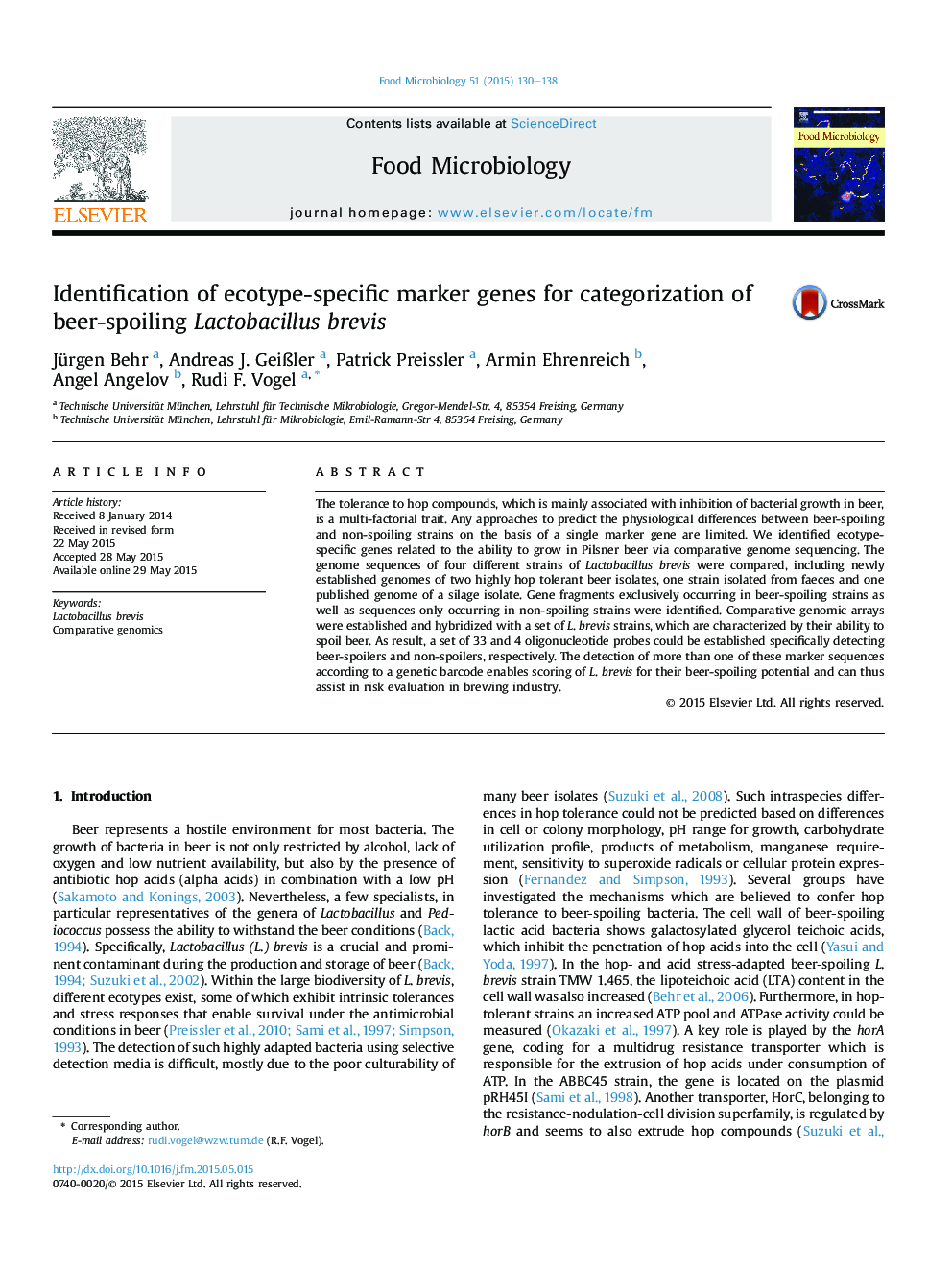| Article ID | Journal | Published Year | Pages | File Type |
|---|---|---|---|---|
| 6288495 | Food Microbiology | 2015 | 9 Pages |
Abstract
The tolerance to hop compounds, which is mainly associated with inhibition of bacterial growth in beer, is a multi-factorial trait. Any approaches to predict the physiological differences between beer-spoiling and non-spoiling strains on the basis of a single marker gene are limited. We identified ecotype-specific genes related to the ability to grow in Pilsner beer via comparative genome sequencing. The genome sequences of four different strains of Lactobacillus brevis were compared, including newly established genomes of two highly hop tolerant beer isolates, one strain isolated from faeces and one published genome of a silage isolate. Gene fragments exclusively occurring in beer-spoiling strains as well as sequences only occurring in non-spoiling strains were identified. Comparative genomic arrays were established and hybridized with a set of L. brevis strains, which are characterized by their ability to spoil beer. As result, a set of 33 and 4 oligonucleotide probes could be established specifically detecting beer-spoilers and non-spoilers, respectively. The detection of more than one of these marker sequences according to a genetic barcode enables scoring of L. brevis for their beer-spoiling potential and can thus assist in risk evaluation in brewing industry.
Related Topics
Life Sciences
Agricultural and Biological Sciences
Food Science
Authors
Jürgen Behr, Andreas J. GeiÃler, Patrick Preissler, Armin Ehrenreich, Angel Angelov, Rudi F. Vogel,
